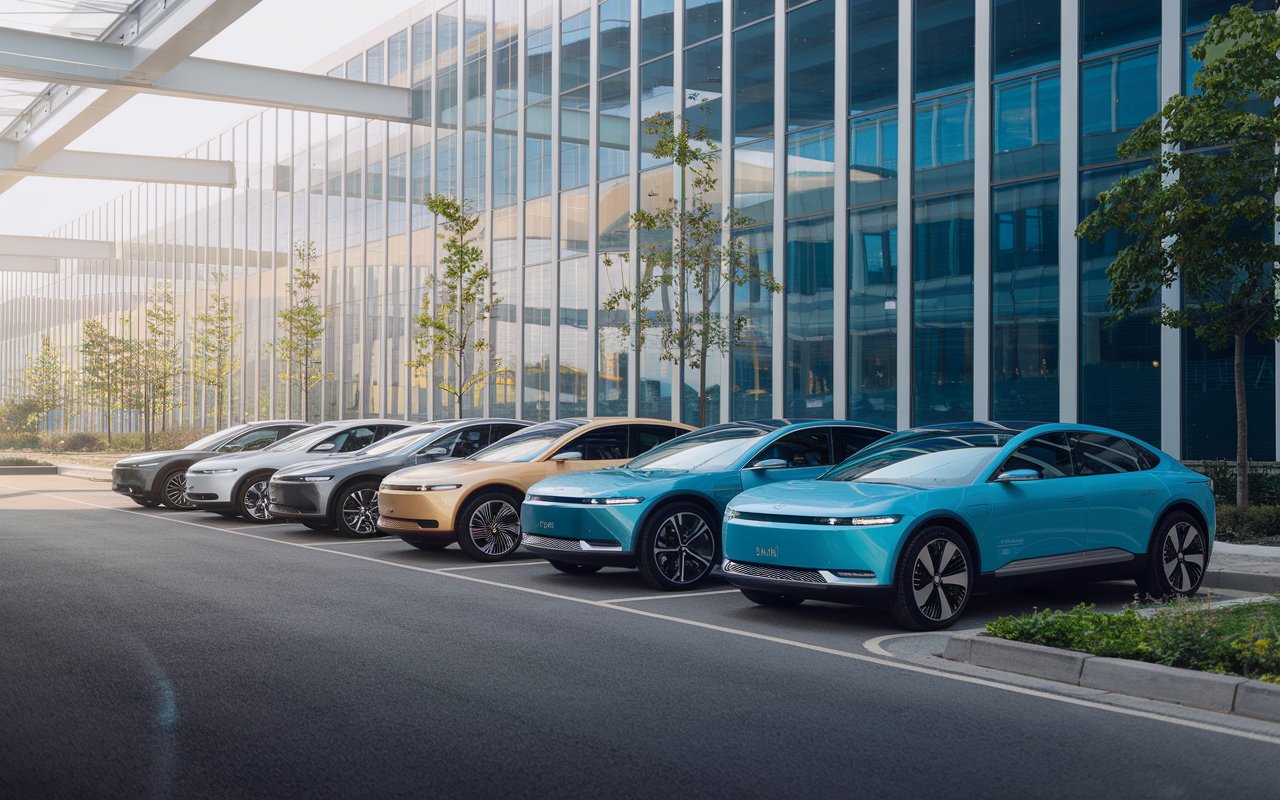The automotive industry is undergoing a profound transformation, driven by an urgent need for sustainability. From electric vehicles (EVs) to cutting-edge manufacturing processes, the sector is embracing innovations that prioritize environmental impact without compromising performance. This article explores the latest trends shaping the industry and highlights how the shift towards sustainability is redefining mobility as we know it.
1. The Rise of Electric Vehicles (EVs)
Electric vehicles are no longer just niche products—they are rapidly becoming mainstream. With advancements in battery technology and increasing governmental support, EVs are revolutionizing the way we think about transportation.
- Affordable Models: Brands are now offering more budget-friendly EV options.
- Increased Range: Improved battery efficiency has extended driving ranges, addressing one of the major concerns of EV adoption.
- Global Sales Growth: EV sales are projected to double by 2030, reflecting a growing shift in consumer preferences.
2. The Push for Hydrogen Fuel Cells
While EVs dominate headlines, hydrogen fuel cell vehicles (HFCVs) are emerging as a strong contender in the race for sustainability. HFCVs offer benefits such as zero emissions and faster refueling times, making them ideal for long-haul transport and heavy-duty applications.
3. Autonomous Vehicles and Their Role in Sustainability
Autonomous vehicles (AVs) are not just about convenience; they also have the potential to reduce emissions. By optimizing routes and improving traffic flow, AVs can cut fuel consumption significantly. Shared autonomous fleets could further decrease the number of vehicles on the road, reducing environmental impact.
4. Sustainable Manufacturing Practices
The push for sustainability isn’t just limited to vehicles; it extends to how they’re made:
- Use of Recycled Materials: Manufacturers are integrating recycled steel, aluminum, and plastics into vehicle production.
- Energy-Efficient Plants: Solar and wind power are increasingly being used to power automotive factories.
- Reduced Waste: Zero-waste manufacturing processes are becoming the industry standard.
5. Advances in Battery Recycling
As EV adoption grows, the challenge of recycling lithium-ion batteries becomes critical. The industry is investing in technologies to recover precious metals like lithium, cobalt, and nickel, minimizing the environmental footprint of EV batteries.
6. Shared Mobility Services
Ride-sharing and car-sharing platforms are redefining the way people access vehicles. These services reduce the number of cars on the road, leading to lower emissions and more efficient use of resources.
7. Lightweight Materials for Efficiency
The use of lightweight materials like carbon fiber and advanced composites is helping automakers improve fuel efficiency. Lighter vehicles require less energy to operate, making them more eco-friendly.
8. Renewable Energy-Powered Charging Infrastructure
The growth of EVs depends heavily on the availability of sustainable charging solutions. Companies are increasingly investing in renewable energy-powered charging stations, which ensure that EVs remain environmentally friendly throughout their lifecycle.
9. Incentives and Policies Driving Change
Government policies and incentives are playing a critical role in the industry’s shift towards sustainability:
- Subsidies for EV Buyers: Many countries offer tax breaks and subsidies to make EVs more accessible.
- Stringent Emissions Standards: Automakers are required to meet tough emissions regulations, pushing them towards greener technologies.
- Support for Green Tech R&D: Governments are funding research into sustainable automotive technologies.
10. Consumer Demand for Sustainability
The modern consumer is increasingly eco-conscious. Buyers are now looking for vehicles that align with their values, from zero-emission cars to brands that prioritize ethical and sustainable practices.
11. Challenges in the Transition to Sustainability
While progress is being made, the shift towards sustainability isn’t without hurdles:
- High Initial Costs: EVs and green technologies often come with a higher upfront cost.
- Charging Infrastructure Gaps: Inadequate charging networks remain a barrier for EV adoption in some regions.
- Supply Chain Issues: Sourcing rare earth materials for batteries and components poses ethical and environmental challenges.
12. Collaborative Efforts for a Greener Future
Automakers, governments, and tech companies are joining forces to accelerate sustainability:
- Partnerships for EV Development: Collaborations are speeding up innovation in electric mobility.
- Sustainability Pledges: Many companies have committed to achieving net-zero emissions by 2050 or earlier.
Conclusion
The automotive industry is at a pivotal moment, with sustainability driving innovation and change. From electric and hydrogen-powered vehicles to green manufacturing practices, the shift is not just a trend but a necessity. As challenges are addressed and technologies advance, the future of transportation looks cleaner, greener, and more sustainable.
Frequently Asked Questions (FAQs)
1. What are the key drivers of sustainability in the automotive industry?
Advancements in electric vehicles, government policies, and consumer demand for eco-friendly options are the primary drivers.
2. Are hydrogen fuel cells a viable alternative to electric vehicles?
Yes, hydrogen fuel cells offer advantages like faster refueling and suitability for heavy-duty transport, complementing EVs.
3. How are automakers reducing their environmental impact?
Through practices like using recycled materials, adopting renewable energy, and implementing zero-waste manufacturing processes.
4. What challenges do EVs face in becoming mainstream?
High initial costs, limited charging infrastructure, and battery recycling challenges are major hurdles.
5. How can consumers contribute to sustainability in transportation?
By opting for EVs, using shared mobility services, and supporting brands with eco-friendly practices.
